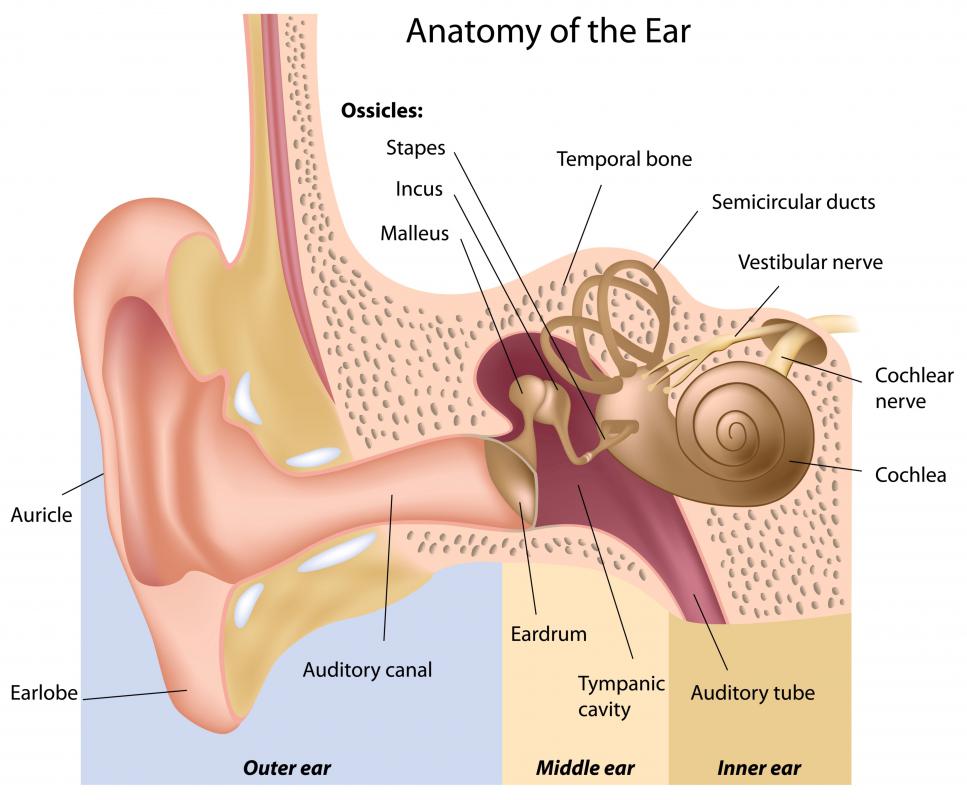At TheHealthBoard, we're committed to delivering accurate, trustworthy information. Our expert-authored content is rigorously fact-checked and sourced from credible authorities. Discover how we uphold the highest standards in providing you with reliable knowledge.
What is Autoimmune Inner Ear Disease?
Autoimmune inner ear disease, also called AIED, is a disorder in which the body’s immune system begins attacking cells of the inner ear. The disease can cause symptoms such as dizziness, hearing loss, and tinnitus. Approximately 28 million Americans have ear problems which cause hearing loss; of these less than 1% has AIED.
Symptoms of autoimmune inner ear disease are often of rapid onset. Typically, sudden hearing loss in one ear progresses rapidly to affect both ears. Over the course of several weeks or months, the affected individual will lose partial or full hearing in both ears. In addition to hearing loss, a person with AIED may also experience vertigo, ringing in the ears, tinnitus, dizziness and loss of balance, and a feeling of fullness in one or both ears.

These symptoms occur because AIED is an autoimmune disease, a class of disorders in which the immune system is triggered in an abnormal fashion. In this case, the immune system responds to certain cells in the body as though they were invading organisms such as bacteria or viruses. When autoimmune inner ear disease is triggered, cells and antibodies of the immune system are attack certain proteins that are present in cells of the inner ear, killing cells and eventually destroying ear function.

Diagnosing AIED is often difficult because the symptoms are relatively non-specific. Autoimmune inner ear disease is often mistaken for otitis media, a more common and less serious inner ear infection which is treated with antibiotics. In many cases, a correct diagnosis of AIED is made only when the disease begins to affect both ears.
As with many other types of autoimmune disease, the primary treatment of autoimmune inner ear disease is corticosteroid medication. Steroids are prescribed because they have an immunosuppressant effect, meaning that they suppress the immune system so that the inner ear is no longer under threat. The problem with steroid treatment, however, is that it is non-specific. Steroids will help treat AIED by suppressing the immune system’s attack against the inner ear, but steroids will also suppress the entire immune system, making the patient more vulnerable to infection.

Steroids are generally considered to be unsuitable as a long-term treatment due to their side effects. For people who do not benefit from steroids, cytotoxic drugs such as cyclophosphamide and methotrexate may be used. Cytotoxic drugs are usually used as cancer treatments, but are also useful in this case because these drugs kill rapidly dividing cells, a category to which both cancer cells and immune cells belong.

People who develop permanent hearing loss in both ears may be candidates for cochlear implantation. The cochlear implant is an electronic device which is surgically implanted within the inner ear. The implants work by stimulating auditory nerves in the inner ear to produce sound.
AS FEATURED ON:
AS FEATURED ON:














Discuss this Article
Post your comments